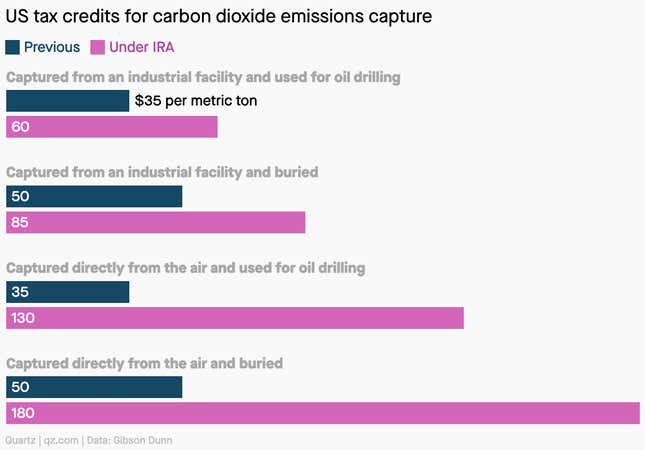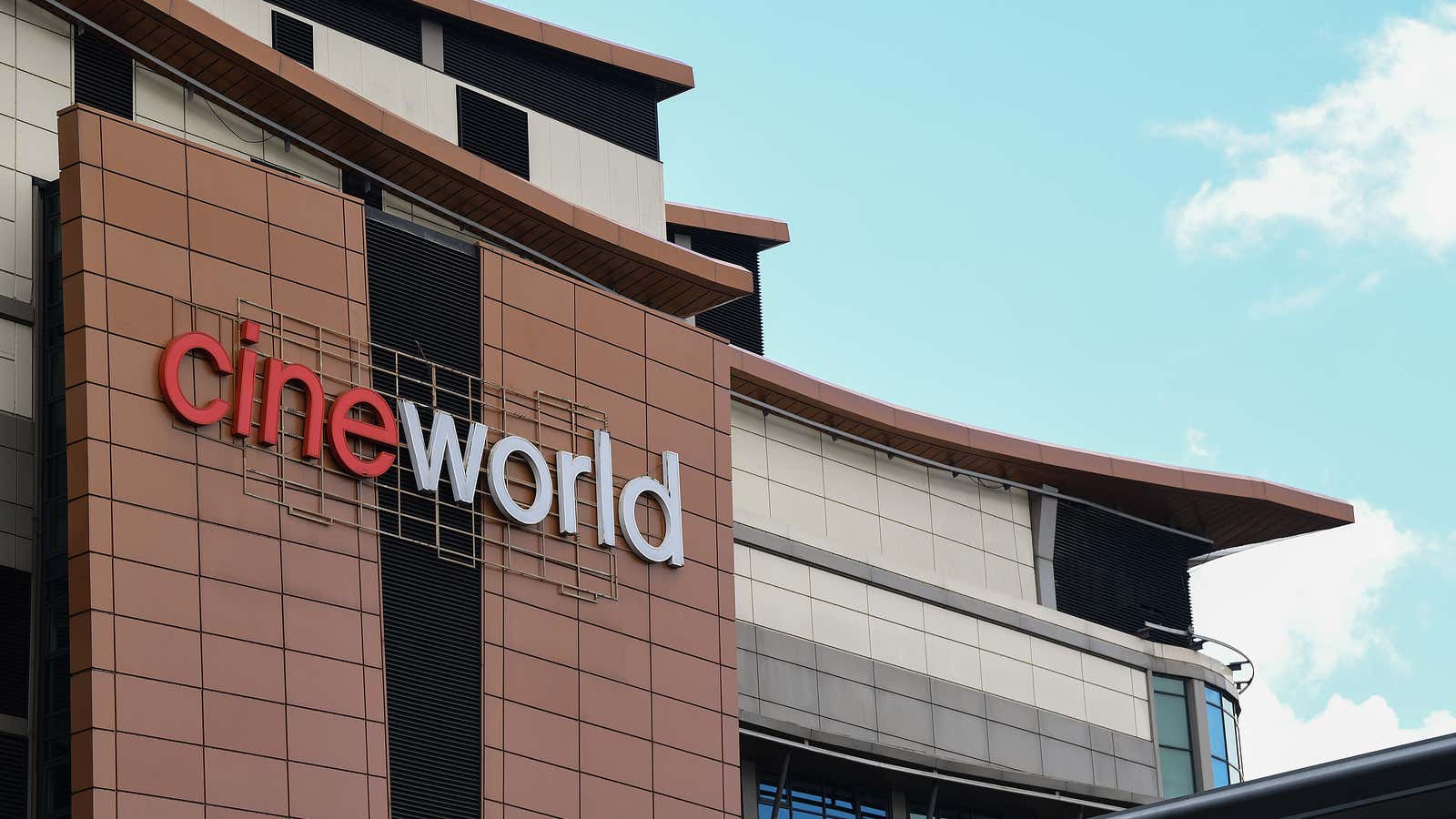Good morning, Quartz readers!
Here’s what you need to know
Cineworld teeters on the brink of bankruptcy. The cinema chain is considering filing for chapter 11 protection in the US as ticket sales have yet to recover from the pandemic.
Warren Buffett got the green light to buy 50% of Occidental. However, Berkshire Hathaway isn’t expected to pursue a takeover of the oil company, of which it’s already the single largest shareholder.
A sanctioned Russian billionaire’s superyacht is going under the hammer. Proceeds from the sale of the $75 million vessel will go towards repaying a JP Morgan loan.
Controversial Israeli spyware company NSO Group is changing its leadership. Chief operating officer Yaron Shabat takes the reins from cofounder Shalev Hulio as part of a restructuring that is also due to include 100 job cuts.
Another US lawmaker landed in Taiwan. The governor of Indiana and a delegation arrived yesterday for an economic development trip to talk about semiconductor investments.
A car bomb near Moscow killed the daughter of an ally of Vladimir Putin. Darya Dugina’s father Alexander Dugin is a far-right commentator who has supported the Russian president’s invasion of Ukraine.
Argentina named a government critic as the deputy of its new economic superministry. Economist Gabriel Rubinstein is tasked with taming inflation, which has soared to decades-high rates that have crippled workers’ salaries.
What to watch for
Raise a glass for World Plant Milk Day, which is today. It started as a way to bring awareness to the benefits of plant-based milks for the environment, but isn’t all vegan PR. Plant-based milks have grown into big businesses. The oat-milk market, for example, has become more saturated, and the milk option is such a hot commodity that numerous coffee shops are doing away with surcharges for it.
Here’s where the global plant-based milk market stands:
$17.7 billion: Global sales for milk alternatives in 2021, up 23% in five years
$277.9 million: Sales of oat milk in the US in 2021, up from less than half a million in 2017
65%: Share of the global population with some degree of lactose intolerance
1994: The year Swedish oat milk brand Oatly was founded
$10 billion: Valuation at the time Oatly went public
Carbon capture’s leap forward
The Inflation Reduction Act, that huge US climate bill everyone is talking about, is set to spark a boom in technologies that could reduce greenhouse gas emissions. Among the developments is carbon capture and sequestration (CCS), a technology that aims to absorb and store emissions from fossil fuel production before they reach the atmosphere.
Many climate scientists don’t love CCS as it’s seen as providing a loophole to move away from burning oil and gas as a source of energy. The technology has also yet to fulfill its promise of significantly reducing emissions from fossil fuel plants.

But even in a world that sources its energy from renewables, CCS could prove its worth in industrial production of steel and cement for which few clean alternatives currently exist. The IRA significantly expands tax credits toward CCS projects, allowing less-controversial applications of the technology, which were previously unaffordable, to finally become competitive.
Does your pet need a pet?
During the pandemic, pet adoptions surged. But now that the humans are returning to the office, their animals have descended into despair. And that means even more adoptions. “People are getting their pets a pet,” said Dr. Cherice Roth, chief veterinary officer for Fuzzy, a pet telehealth startup. “It’s really common and it does actually increase the number of pets that have to be seen.”
Vets, dogwalkers, and pet-sitters are overbooked, and although certain pandemic trends have proven to be short lived, pet spending is unlikely to decrease. And employer-sponsored pet perks are on the rise, reports Tiffany Ap.
✦ Do you find stories like these to be a real treat? Member support helps keep Quartz stories free and accessible to all. Daily Brief readers can take 40% off when they sign up today!
Quartz’s most popular
💉 Incarcerated people should be getting monkeypox vaccines
🙉 Covid has changed the way we hear language
🐉 HBO Max’s “House of the Dragon” is already besting Amazon’s “The Rings of Power”
💻 Microsoft is leading Big Tech’s push to relocate African developers to North America
👻 Snap is pivoting away from drones to focus on fundamentals
Surprising discoveries
Two artists are fighting over who taped fruit to a wall first. The lawsuit is absolutely bananas.
A seal broke into a New Zealand home and terrorized a family’s cat. A marine biologist lives in the home, but wasn’t there for his time to shine.
Trees in the UK are losing leaves much earlier than usual. Put those pumpkin lattes and candles away, it’s way too early to be a seasonal thing.
The next British Invasion might just be the Chicken Big Mac. The McDonald’s sandwich was such a hit in the UK that it’s coming to the US.
New York museums have to publicly disclose if their art was stolen by Nazis. The new requirement is part of legislation that was signed to support Holocaust survivors.
Our best wishes for a productive day. Send any news, comments, copyrighted bananas, and rogue seals to [email protected]. Reader support makes Quartz available to all—become a member. Today’s Daily Brief was brought to you by Susan Howson, Michelle Cheng, Sofia Lotto Persio, and Morgan Haefner.
